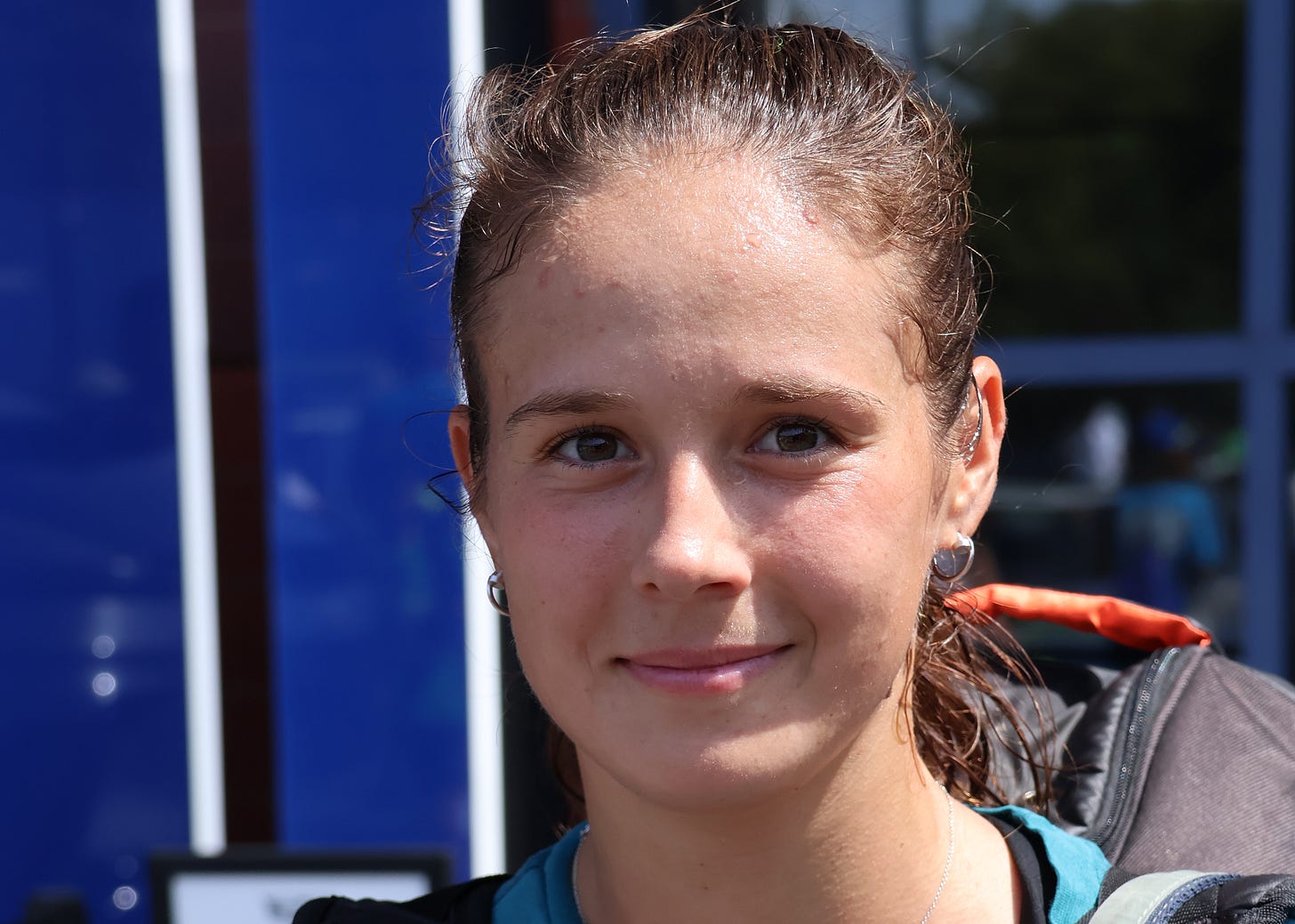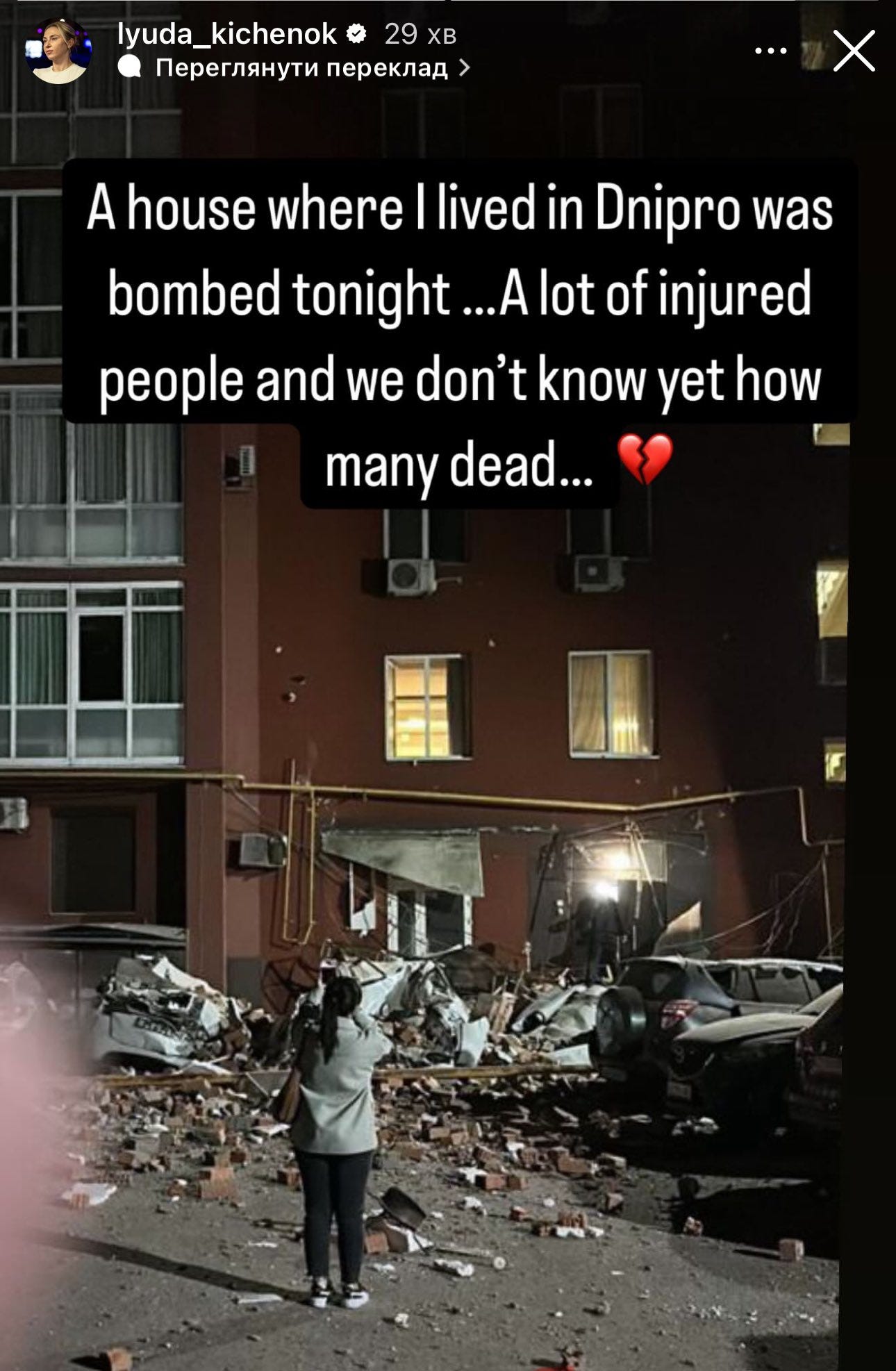Daria Kasatkina Makes Her Move
Kasatkina, whose outspokenness set her apart from other Russians in tennis, is switching to Australia.
The crossroads of tennis and nationality had already been on my mind this week when, Friday evening, the Russian tennis player Daria Kasatkina announced that she was switching her allegiance to Australia.
The statement Kasatkina posted on social media:
“I am delighted to let you all know that my application for permanent residency has been accepted by the Australian Government. Australia is a place I love, is incredibly welcoming, and a place where I feel totally at home. I love being in Melbourne and look forward to making my home there. As part of this, I am proud to announce that I will be representing my new homeland, Australia, in my professional tennis career from this point onwards.
Obviously, there are parts of this decision that have not been easy. I want to express my thanks and gratitude to my family, coaches, and everyone who has supported me throughout my tennis journey to date. I will always have respect and fond appreciation for my roots, but I am thrilled to start this new chapter in my career and my life under the Australian flag. Thank you all for your understanding and continued support. 💜
Kasatkina’s Discomfort in Russia

Though the timing of Kasatkina’s announcement had not been anticipated, the notion that she would leave Russia is not surprising for those who have followed her in recent years.
Kasatkina, a 27-year-old who at No. 12 had been the second-highest ranked Russian in the WTA behind only Mirra Andreeva, has not re-entered the country since 2022. More outspoken than her compatriots in the sport, Kasatkina was critical of Russia’s February 2022 invasion of Ukraine, calling it “a complete nightmare.” In the same interview where she made those comments, Kasatkina also came out as part of the LGBT community, revealing her romantic relationship with the Estonian-Russian figure skater Natalia Zabiiako.
Because of Russia’s strict laws and harsh persecution against both dissidents against the war effort and members of the LGBT community, Kasatkina hadn’t returned home since making those public comments.
“Since that moment, I haven't been in in Russia,” Kasatkina told reporters early last year. “…As everyone knows: situation with the war didn't change, so my situation didn't change as well. So unfortunately, yes, it goes on...I'm not super welcome there, let's say, with all the new laws and stuff, unfortunately.”
From a 2022 New York Times Magazine article about the impact of the war in tennis:
A member of the Duma, Russia’s parliament, reportedly called for [Kasatkina] to be classified as a foreign agent. While Morris and the rest of Kasatkina’s team believe that she is safe outside Russia, they are not taking any chances: They are mindful of putting her on flights that go anywhere near Russian airspace.
But still, Kasatkina was not quick to abandon Russia, and she was able to continue her career without changing nationalities.
Outside of the British ban of Russian and Belarusian players in 2022, barring them from tournaments including Wimbledon1, Russian and Belarusian players have been able to continue their careers on the ATP and WTA Tours with few disruptions since the war began. Russian and Belarusians have had their nationalities redacted by the tennis tours and major tournaments since the war began, but they haven’t faced the complete prohibitions from competing that Russian and Belarusian athletes in many other face.
But because of tennis’s permissiveness about letting players from these countries continue to compete and earn on tour, only a handful of WTA players have elected to switch from Russia to other countries since the war began: Natela Dzalamidze switched from Russia to Georgia just before Wimbledon in 2022; Varvara Gracheva switched from Russia to France in 2023; and Elina Avanesyan switched from Russia to Armenia in 2024.
There have been a few drawbacks to being a Russian or Belarusian on tour since the war, to be clear, including occasional difficulties securing travel documents. Sponsors are less eager for Russian and Belarusian athletes since the war began—see the relatively low-sponsor profile of current WTA No. 1 Aryna Sabalenka of Belarus—and there may also be fewer opportunities for things like wild cards, as Anastasia Pavlyuchenkova suggested in her interview with Bounces earlier this year.
Russian and Belarusian players also have not been able to compete in the nationality-based United Cup, Davis Cup, or BJK Cup.
But compared to the difficulties faced by people on the ground in Ukraine, where the Russian military’s continued attacks continue to target and kill civilians, the Russian tennis players have it pretty easy.
Also on Friday night, coincidentally right around the time of Kasatkina’s announcement, the Ukrainian doubles player Lyudmyla Kichenok, who is in Charleston preparing for her next tournament, posted a photo from the rubble of a building she’d lived in in Dnipro.
Where Kasatkina Could’ve Gone
The news that Kasatkina is switching nationalities was not a surprise—the idea that she could defect from Russia had been discussed in tennis circles for years—but Australia hadn’t been the country most commonly mentioned in those conversations.
(Tumaini Carayol and I had actually briefly discussed the prospect of Kasatkina switching countries about 18 minutes into an episode of No Challenges Remaining earlier this month, as part of a larger discussion about how Mirra Andreeva’s nationality would affect her emerging presence as a star of women’s tennis.)
I had suggested Spain as the hypothetical country toward which Kasatkina could switch, since she spent years training there. The WTA tournament in Abu Dhabi actually erroneously put a Spanish flag next to Kasatkina’s name in its draw ceremony last month. Kasatkina’s management denied to the BBC that Kasatkina was switching to Spain, and tournament organizers apologized to her.
The error was particularly strange because Kasatkina hasn’t lived in Spain for a few years; she’d moved her base, as many Russian players have in recent years, to the sunny tax haven of Dubai. (Such residents of the UAE rarely switch to Emirati allegiance, though.)
If not Spain, I had also thought that Estonia, the original homeland of her girlfriend Natalia Zabiiako, could be a welcoming new country for Kasatkina.
Why Australia?
But upon seeing her announcement, Australia makes sense for Kasatkina on several levels.
Australia—and Melbourne specifically, where Kasatkina said she intends to make her home—would be a familiar and comfortable place for her. Kasatkina has played the Australian Open ten times, most recently reaching the fourth round this year. Tennis Australia, as Kasatkina would know from all her visits to its facilities, is a robust national federation with considerable resources from which Kasatkina could benefit.
Despite not being geographically convenient for most of the tour, Australia has been an increasingly popular destination for migrating players this century, particularly those leaving Eastern Europe. Jelena Dokic, Jarmila Gajdosova, Ajla Tomljanovic all became Australians after representing various Eastern European countries; Daria Saville (née Gavrilova) and sisters Anastasia and Arina Rodionova both switched from Russia to Australia.
“New neighbour 🤍,” Saville wrote in the Instagram comments of her longtime friend’s announcement.
(The United States, once the default destination for defections in various sports including tennis, has earned little such reputation for welcoming migrants under its current administration.)
Tennis Australia will also appreciate the boost to its player roster, surely. Australia hasn’t had a player so near the top of women’s tennis since the sudden retirement of then-top-ranked Ash Barty in March 2022. Before Kasatkina’s arrival, 68th-ranked Kimberly Birrell had been the highest-ranked Australian woman.
Beyond any competitive reasons, though, welcoming Kasatkina fits into the reputation for inclusivity that Tennis Australia has earned. Tennis Australia has foregrounded the LGBT community like no other organization in tennis: Pride flags were spangled around the grounds of the Australian Open this year; there was also an option for a pride-themed credential lanyard.
On the eve of this year’s tournament, Nick McCarvel hosted the tournament’s annual pride launch event; despite his busy schedule, tournament director Craig Tiley attended and spoke at the event (as he reliably has in many recent years).
I have reached out to Tiley and Tennis Australia to learn more about their role in facilitating Kasatkina’s defection; Tennis Australia replied they will respond with details soon, and so this article will update when they do.
Update: Tennis Australia sent Bounces the following statement on Sunday afternoon (ET): “Daria Kasatkina has informed us that she has been granted permanent residency by the Australian Government. Tennis Australia warmly welcomes Daria, currently ranked world No. 12, to the Australian tennis family. Effective immediately, Daria will compete as an Australian and we wish her all the best for her upcoming tournaments.”
Beyond the paperwork component of acquiring Australian residency, there will have been a lot of calculation and emotion that went into this decision for Kasatkina. Her next tournament will be the WTA 500 event in Charleston next week, which is fortuitously also the next event I’m planning to cover for Bounces, so I hope to have more of her story here for you soon.
Thank you for reading Bounces! To follow more on this developing story—and the exploration of the role of nationality in tennis that I’d already been working on when this story broke—please consider supporting Bounces with a subscription. Thanks! -Ben
It was during this 2022 Wimbledon tournament, from which she was banned, that Kasatkina spoke openly about her thoughts on the war and her sexual orientation.










Happy news for both Kasatkina and Australia! looking forward to reading your Charleston comments, Ben. Hopefully another small nail in the coffin of anti-LGBTQ in Russia.
Hana Mandlíková also comes to mind, and, while unexpected, as an Australian, so very happy to read Dasha has been successful in her application, and chosen to make her home here.
Also keen to understand more of how this came together - look forward to reading.